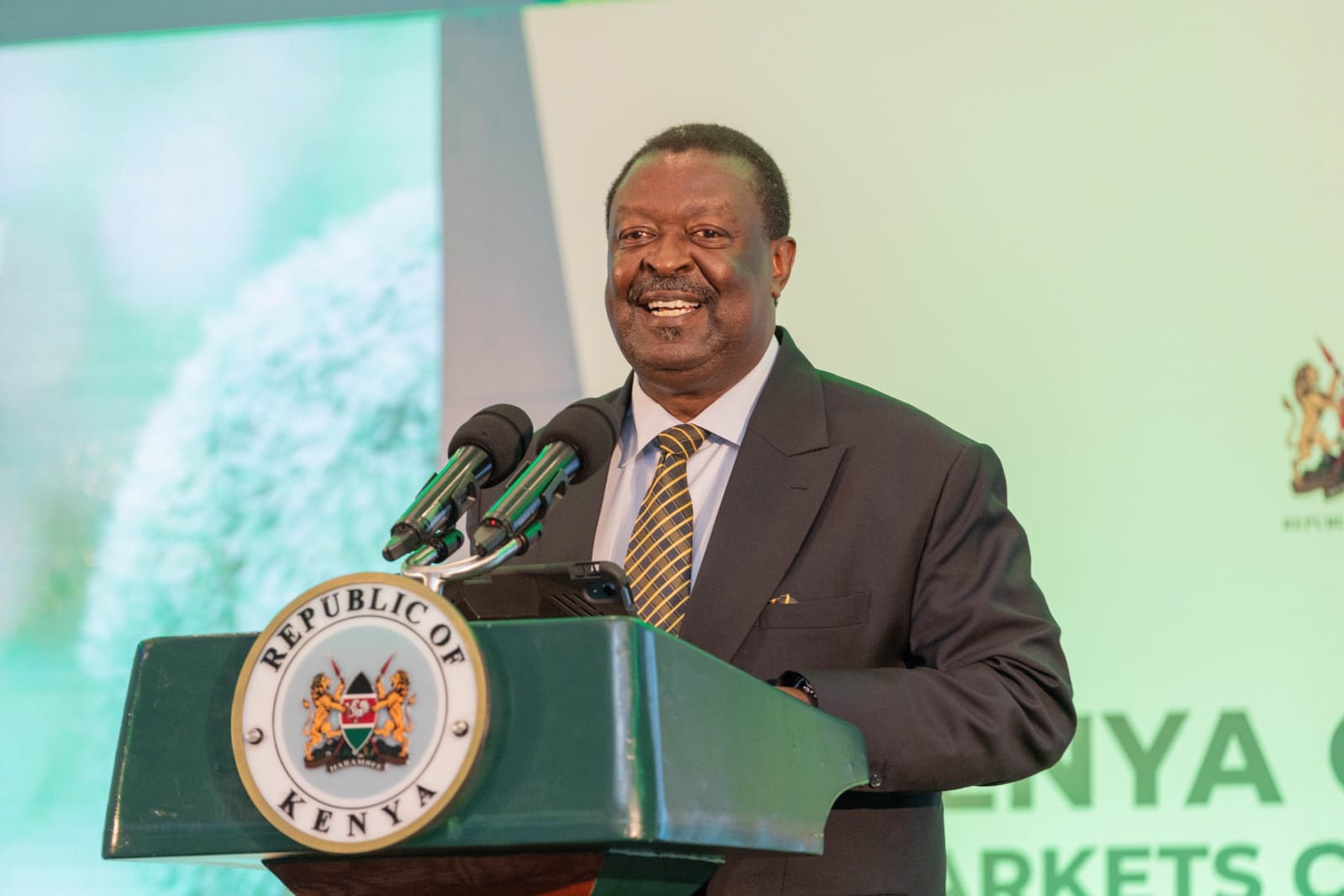
Mudavadi: We must foster enabling environment for investment in carbon markets

Prime Cabinet Secretary Musalia Mudavadi has said Kenya is making remarkable strides in fostering and enabling environment for investment in carbon markets in order to promote prosperity for all Kenyans.
He said the efforts are in line with the importance and seriousness that Kenya attaches to climate positive growth and sustainable development.
Mudavadi said there is an urgent need for Kenya to join other leading countries in addressing the climate crisis and find lasting solutions to the impact of climate change on the economies of the people.
He spoke during the Carbon Markets Conference 2024 that is underway in Nairobi under the theme: Delivering on Carbon Finance.
“Africa’s contribution to global emission is minimal but the continent suffers disproportionately from climate change vulnerability. Yet, this is not a story of despair but one of untapped potential and opportunity. With its rich renewable energy resources, vast expanses of arable land and diverse terrestrial and marine ecosystems, Africa stands at the cusp of sustainable economic growth and green industrialization,” said Mudavadi.
Mudavadi said the conference being held in the Kenyan capital, demonstrates Nairobi’s commitment to build a momentum created by the first-ever Africa Climate Summit that Kenya hosted in September 2023 under the leadership of President William Ruto.
President Ruto who is the Chair of the Committee of the African Heads of State and Government on Climate Change, has been emphasizing on the crucial role of reforming the multilateral financial system to ensure efficient funding for Africa’s climate actions.
“With this in mind we must leverage on innovative financial instruments and adopt a comprehensive approach to increase Africa’s participation in the carbon markets and ensure the continent benefits from them,” said Mudavadi.
“Carbon markets have emerged as a pivotal financial instrument that can catalyse climate action by providing a flow of carbon finance to stimulate green growth,” added Mudavadi.
Mudavadi said carbon markets incentivizes the reduction and removal of emissions, thus encouraging countries and corporations across the globe to invest in cleaner, more sustainable technologies while spurring innovation and technological advancements in energy efficiency, renewable energy, sustainable agriculture and conservation of our forests and grasslands.
He regretted that carbon markets have faced serious scandals regarding green washing and community injustices and urged for strong government and industry action on integrity are necessary to ensure equitable benefit sharing with communities and to protect them from exploitation. Carbon credits being produced must be of high quality and used credibly.
“This is the approach that Kenya has taken. The amendment of our Climate Change Act is a testament to these efforts, as it lays the legal groundwork for carbon market activities in law, protects community benefits and promotes investor confidence,” said Mudavadi.
“From the Act we are now at the finish line with developing regulations. So, today, we are signalling to the world that Kenya is ready to turn opportunity into real carbon finance flow.”
Mudavadi called on the African nations to use the lessons learnt from the tales of missed opportunities and shortcomings, to steer the way towards innovative, locally grown solutions that transform obstacles into drivers of climate-positive growth.
“The voluntary carbon market peaked at $2 billion in 2022, a miniscule amount in comparison to compliance markets globally that totaled several hundreds of billions of dollars in the same year. 18. Prices in compliance markets hit over $80 per tonne, whereas credits from Africa in the voluntary carbon market attract less than $10 a tonne,” he regretted.
Mudavadi said the 2024 Carbon Markets Conference should therefore deeply interrogate the cause of such disparities and discuss strategies for securing premium rates for Kenya’s high-quality carbon credits.
He said success in the carbon market is no simple feat adding that the high revenue projections mean little if a robust legal, institutional and infrastructure framework isn’t in place.
“This is just the beginning. These efforts signal the potential that lies with Kenya’s capacity to sequester, reduce and avoid approximately 30 million metric tonnes of carbon per year. Our potential is to harness up to $600 million annually by 2030, through sale of high-quality carbon credits,” he said.
“Our commitment is to build capacity, develop markets tailored to our unique socio-economic landscape and foster innovative solutions that mobilize financial resources and empower people,” he added.
He urged the African nations to continue working towards a future where our collective efforts in this space translate into tangible, impactful climate action.

